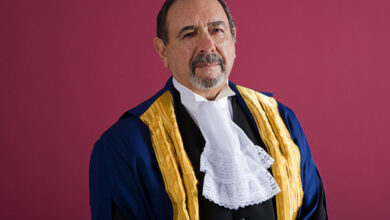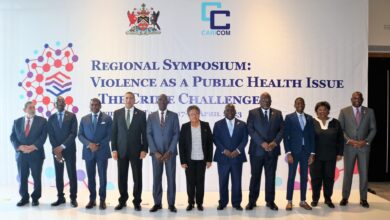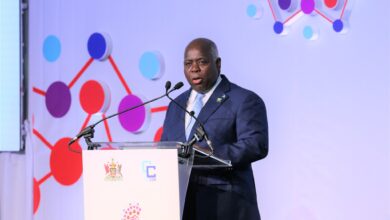Prime Minister Kamla Persad-Bissessar has proposed a US$1 billion “Caribbean Energy Thematic Fund” for Caricom member states to address regional energy security.
Speaking at the First Caribbean Energy Security Summit in Washington, DC yesterday, she reaffirmed Government’s commitment to working with the United States and other Caribbean countries in fostering a “cleaner, more sustainable energy future” in the region.
In a statement sent by the Office of the Prime Minister, Persad-Bissessar said, “Energy is at the heart of efforts to build resilience through improved competitiveness and stronger energy security.”
She noted that resilience can be built by transforming the energy matrix in the Caribbean, which requires a three-pronged approach:
(i) Improving conservation and energy efficiency,
(ii) maximising the use of renewable energy sources and
(iii) converting to liquefied natural gas fuelled electricity generation for the base load capacity.
The statement said Persad-Bissessar acknowledged that the cost of this solution was not supportable for countries with high debt and minimal fiscal space, and it was necessary to engender cooperation for building resilience through energy security.
She proposed a methodology to work with the Inter-American Development Bank (IDB), the Caribbean Development Bank (CDB), the World Bank, the IMF and other international donors, friends of the Caribbean and the private sector to provide the method and means of achieving energy security in a considered manner that is efficient and sustainable.
She said, “After rigorous economic analysis and technical feasibility studies and a thorough assessment of these, we have agreed as a government on the creation of a “Caribbean Energy Thematic Fund” for Caricom member states,” Prime Minister Persad-Bissessar stated.
The target fund under discussion with the IDB will be US$1 billion, with comprehensive international participation being a trigger for Trinidad and Tobago’s commitment, the PM’s statement said.
“We must look past short term fluctuations in oil prices to focus on the long term strategic interests of the region,” Persad-Bissessar said. She noted that the need to focus on long term solutions was raised by members of the Trinidad and Tobago business community, energy sector companies and labour stakeholders.
And in a statement yesterday from the office of United States Vice-President Joe Biden at the White House in Washington, a number of Caribbean governments, as well as Canada, the US and United Kingdom and international agencies, expressed their support for several energy transformation options.
“We state our commitment to support the Caribbean’s transformation of the energy systems of Caribbean states, to share lessons learned through new and expanded regional information networks, to report progress in relevant fora, and to pursue the following in accordance with national laws,” the statement said.
In recognising that increased energy efficiency and more diversified, and clean energy sources can lead to improved energy security,
the countries also agreed that effective, alternative, and renewable energy sources can reduce energy costs, while at the same time providing increased options for countries to diversify their energy matrices.






